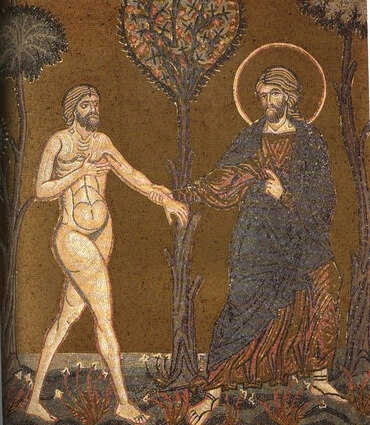1
Ja Dina, Lean tytär, jonka hän Jakobille synnyttänyt oli, meni katselemaan sen maakunnan tyttäriä.
2
Koska Sikem, Hemorin Heviläisen, sen maakunnan ruhtinaan poika näki hänen, otti hän hänen ja makasi hänen, ja häpäisi hänen.
3
Ja hänen sydämensä paloi Dinan Jakobin tyttären perään; ja rakasti piikaa, ja puhutteli häntä suloisilla sanoilla.
4
Ja Sikem puhui isällensä Hemorille, sanoen: ota minulle tämä piika emännäksi.
5
Ja Jakob kuuli, että he hänen tyttärensä Dinan olivat häväisseet, ja hänen poikansa olivat lauman kanssa kedolla. Ja Jakob vaikeni siihenasti kuin he tulivat.
6
Ja Hemor Sikemin isä meni Jakobin tykö puhuttelemaan häntä.
7
Silloin tulivat Jakobin pojat kedolta: ja koska he sen kuulivat, tulivat miehet surulliseksi, ja vihastuivat sangen kovin; että hän oli tehnyt tyhmyyden Israelissa, maaten Jakobin tyttären: sillä ei ollut se oikein tehty.
8
Niin puhui Hemor heidän kanssansa, sanoen: minun poikani Sikemin sydän halajaa teidän tyttärenne jälkeen; antakaat siis se hänelle emännäksi.
9
Naittakaat teitänne yhteen meidän kanssamme: antakaat teidän tyttärenne meille, ja ottakaat jällensä meidän tyttäremme teille.
10
Ja asukaat meidän kanssamme: maan pitää oleman teillä alttiina, asukaat, myykäät ja ostakaat siinä, ja omistakaat maa.
11
Ja Sikem sanoi hänen isällensä ja veljillensä: antakaat minun löytää armo teidän edessänne: ja mitä te sanotte minulle, sen minä annan.
12
Anokaat minulta rohkiasti huomenlahja ja antimia, ja minä annan, mitä te anotte: antakaat minulle vaivoin se piika emännäksi.
13
Niin vastasivat Jakobin pojat Sikemille, ja hänen isällensä Hemorille, ja puhuivat petoksella; että hän oli heidän sisarensa Dinan häväissyt.
14
Ja sanoivat heille: emme taida sitä tehdä, että me annamme meidän sisaremme ympärileikkaamattomalle miehelle: sillä se olis meille häpiäksi.
15
Mutta kuitenkin siinä me suostumme teihin; jos te tulette meidän kaltaiseksemme, että kaikki miehenpuoli teidän seassanne ympärileikattaisiin,
16
Niin me annamme meidän tyttäremme teille, ja otamme teidän tyttärenne meille, ja asumme teidän kanssanne ja tulemme yhdeksi kansaksi.
17
Mutta jollette kuule meitä, ja anna teitänne ympärileikata; niin me otamme meidän tyttäremme, ja menemme matkaamme.
18
Ja heidän puheensa kelpasi Hemorille, ja Sikemille Hemorin pojalle.
19
Ja se nuori mies ei viivytellyt sitä tehdäksensä: sillä hän rakasti suuresti Jakobin tytärtä, ja hän oli kunniassa pidettävä kaikkein ylitse isänsä huoneessa.
20
Niin tuli Hemor ja hänen poikansa Sikem kaupunkinsa porttiin, ja puhuivat kaupunkinsa miehille, sanoen:
21
Nämät miehet ovat rauhalliset meidän kanssamme, ja tahtovat asua ja elää tällä maalla, ja katso, maa on kyllä avara heidän edessänsä: ottakaamme heidän tyttärensä meille emännäksi, ja antakaamme meidän tyttäremme heille.
22
Mutta siihen ne miehet antavat meille suosionsa, asuaksensa meidän kanssamme ja tullaksensa yhdeksi kansaksi: jos meistä ympärileikataan kaikki miehenpuoli, niin kuin he myös ympärileikatut ovat.
23
Heidän karjansa ja hyvyytensä, ja kaikki heidän eläimensä, eikö ne ole meidän omamme? Jos me muutoin olemme heidän tahtonsa jälkeen, niin että he asuvat meidän kanssamme.
24
Ja he olivat Hemorille kuuliaiset, ja Sikemille hänen pojallensa, kaikki jotka hänen kaupunkinsa portista kävivät ulos: ja ympärileikkasivat itsensä, jokainen miehenpuoli, jotka hänen kaupunkinsa portista kävivät ulos.
25
Ja tapahtui kolmantena päivänä, koska he kipiämmällänsä olivat, ottivat kaksi Jakobin poikaa Simeon ja Levi, Dinan veljet, kumpikin miekkansa, ja menivät rohkiasti kaupunkiin: ja tappoivat jokaisen miehenpuolen.
26
Ja tappoivat myös Hemorin, ja hänen poikansa Sikemin miekan terällä: ja ottivat Dinan Sikemin huoneesta, ja menivät pois.
27
Niin tulivat Jakobin pojat tapettuiden päälle, ja ryöstivät kaupungin; että he olivat häväisseet heidän sisarensa.
28
Ja veivät pois heidän lampaansa, karjansa, aasinsa, ja mitä sekä kaupungissa että kedolla oli.
29
Ja kaikki heidän hyvyytensä, lapsensa ja heidän vaimonsa he ottivat vangiksi, ja ryöstivät; niin myös kaikki, mitä huoneissa oli.
30
Ja Jakob sanoi Simeonille ja Leville: te olette minulle mielikarvauden tehneet, saattaen minun haisevaiseksi tämän maakunnan asuvaisille, Kanaanealaisille ja Pheresiläisille: ja minä olen vähä joukko, koska he heitänsä kokoovat minun päälleni, niin he tappavat minun, ja minä hukutetaan, ja minun huoneeni.
31
Mutta he vastasivat: pitiköstä heidän tekemän meidän sisaremme kanssa, niinkuin jonkun porton kanssa?







